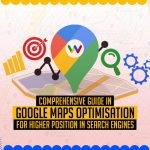Boost Your Small Business with SEO: Generating Organic Leads Through Search Engines
SEO can bolster a company’s lead generation by making it easier for potential customers to find the website through increased organic traffic. The more times your website appears on Google’s first page, the likelier it is that consumers will explore your site and learn about what you have to offer.
Thus, having a channel to communicate and engage with your audiences is influential. And this channel is through your website. However, audiences will not come running to your landing pages unless you find a way to bring your website closer to them.
Paid advertising is an option, but can be quite an expensive route to take, especially for small businesses. The best and more affordable alternative you have is through search engine optimisation.
Introduction
SEO for Small Business will help to optimise your website for relevant keywords, you can increase your visibility in search engine results pages and drive targeted traffic to your site.
As a small business owner, budget constraints can make it difficult to invest in marketing strategies. However, investing in search engine optimisation (SEO) can be a cost-effective way to improve your website’s rankings and attract more potential customers.
Additionally, SEO needs continuous nurturing such as regularly creating quality content, obtaining backlinks from reputable sources to maintain or boost your rankings.
While SEO may seem complicated and time-consuming at first, the long-term benefits outweigh the initial effort. With effective SEO tactics, you can improve your website’s success and ultimately grow your business.
Table of Contents
Local SEO vs SEO for Small Businesses

What is Local SEO and How to Do It?
The purpose of Local SEO is to increase your business’ ranking in local search results so that customers who are seeking products or services similar to yours will see your business first.
To do Local SEO, you need to make sure that your NAP (Name, Address, Phone Number) is consistent across all listings and directories (such as Google My Business, Yelp, Foursquare, etc.). You also want to make sure that you have location-specific pages on your website, and that you are creating content that is relevant to the areas you serve.
Global or Traditional SEO for Small Businesses
If you are not focused on a specific geographic area, then you will want to do traditional or global SEO. The goal of global SEO is to increase your ranking in search results and search engines that are not tied to any specific location.
To do global SEO, you need to make sure that your website is optimised for all relevant keywords and that you are creating high-quality content that is relevant to your niche. You also want to make sure that you are building links from high-quality websites.
Similarities of Local SEO and SEO for Small Business
There are more similarities than there are differences between local SEO and SEO for small businesses. The main similarity is that they both focus on improving your website’s ranking in search results. In other words, they both aim to increase your visibility online so that more people will see your site and learn about your small business.
Another similarity is that they both require you to create high-quality content. This content needs to be relevant to your niche and keyword-optimised so that it can rank well in search results. Thus, it requires the same process such as keyword research, creating an SEO strategy, working on your target keywords and a lot of time in Google Analytics. Your SEO efforts are almost the same.
Local SEO vs Global SEO: Which One Should You Choose?
The answer to this question depends on your business goals. If you want to reach new markets and expand your business, then global SEO is the way to go. However, if you would like to drive more organic traffic to your local businesses and improve conversions, then local SEO is the better choice.
Both type of SEO requires off-page SEO and on-page SEO efforts too. The main difference really is the set of keywords to focus on and the target audience that you should be directing your content marketing efforts to.
Additionally, you need to build links from high-quality websites regardless of which type of SEO you are doing. Both also aims to bring in higher organic search results for your business.
So, what is the difference these two can offer to your online brand? Which is more ideal for your small business SEO needs? What is more advantageous but is within the budget that most small businesses have? The answer is – both. You can use SEO to widen your reach and target new markets. At the same time, you can also use local SEO to drive more organic traffic to your site and improve conversions.
Ultimately, the best way to decide which type of SEO to do is to experiment with both and see what works better for your business. Try ranking for relevant keywords in different geographic areas and see how it affects your traffic. Alternatively, try creating location-specific pages on your website and see if that increases your conversions.
No matter which type of SEO you choose, the important thing is to create high-quality content and build links from high-quality websites.
By doing this, you will be well on your way to improving your website’s ranking in search results.
How SEO Helps Your Business Grows

SEO does this by improving your website’s ranking in search results. The higher your website ranks, the more likely people are to see it. And the more people who see your site, the more likely they are to learn about your products or services.
Additionally, SEO can help you to reach new markets and expand your business. By ranking for relevant keywords, you can attract new customers who are looking for what you have to offer.
Finally, SEO can help you to improve your website so that it is more user-friendly and relevant to your customers. By making sure that your website is optimised for search engines, you can make it easier for people to find what they are looking for. Additionally, by creating high-quality content, you can provide value to your customers and show them that you are an expert in your field.
Four Steps in the SEO Process

Technical SEO
Technical SEO is the process of making sure that your website is optimised for search engines. This includes things like ensuring that your site is mobile-friendly and easy to navigate. Additionally, it involves making sure that your site’s code is clean and free of errors.
On-Page SEO
On-page SEO is the process of optimising individual webpages for specific keywords. This includes things like adding relevant keywords to titles and headlines, as well as including keyword-rich content on your pages.
Off-Page SEO
Off-page SEO is the process of building links from other websites back to your own. This helps to improve your website’s authority and ranking in search results. The best way to build links is to create high-quality content that other websites will want to link to.
Finally, content is the foundation of all SEO efforts. Without high-quality, relevant content on your website, it will be difficult to rank well in search results. Additionally, your content needs to be keyword-optimised so that it can be found by people who are searching for information related to your business.
Checklist for Small Business SEO

Creating Your GMB Profile
Your SEO small business should start by ensuring that your small business appears on Google’s list of businesses when users search for relevant products or services. You can do this simply by creating an account and entering all of your company information, as well as choosing which photos you want to display.
Metadata Optimisation
Metadata is the data search engines use to identify and describe your company’s website. It provides users with information about what content can be found on your website.
To optimise your metadata, start by ensuring that your website’s title tags and meta descriptions are keyword-rich and relevant to your business. Additionally, you should use alt text on all of your images so that search engines can index them.
Creating High-Quality Content
As we mentioned earlier, content is one of the most important aspects of SEO for small businesses. To create high-quality content, start by writing keyword-optimised titles and descriptions. Additionally, make sure that your content is well-researched and relevant to your target audience.
Additionally, you should regularly update your blog with new articles. This helps to show search engines that your site is active and provides value to users. Finally
Get Listed in Local Search Engines
Among the first places customers look when conducting a local search are local business directories, such as Yelp or Bing. These platforms not only let you communicate with a high-intent target audience, but also direct search traffic to your website. To get your business listed in these directories, start by creating profiles for each one.
Once you’ve created a profile, be sure to include all of your relevant business information, such as your address, phone number, and hours of operation. You should also include photos and videos, as well as write descriptions that are keyword-rich and relevant to your business.
Building Links
Finally, one of the best ways to improve your SEO for small business is to build links from high-quality websites. This helps to increase your website’s authority and rankings in search results.
The best way to build links is to create great content that other websites will want to link to. You can also reach out to other businesses and ask them to link to your website. By following these tips, you can improve your small business SEO and get more traffic to your website.
Regular SEO Audits on Your Website
An SEO audit is an essential part of an SEO for small business checklist. It helps identify errors on your website so that they can be fixed. Additionally, an SEO audit will help you track your website’s progress over time and ensure that your SEO efforts are paying off. To conduct an SEO audit on your website, start by using Google’s Page Speed Insights tool.
This tool will identify any areas where your website needs improvement, such as optimising images or minifying CSS. You should use Google’s Search Console to track your website’s performance in search results. This platform provides valuable insights into things like the keywords people are using to find your site, as well as the click-through rate of your listings.
Develop a Social Media Strategy
If you want to talk to your customers in a way that actually benefits everyone, social media is the way to go. You can ask for feedback, answer questions people have been dying to know, connect with similar businesses…the list goes on.
Of course, more importantly than all of that is the fact that increased social media engagement equals an increase in brand visibility and recognition–not to mention a much higher level of trustworthiness. And when those things happen? Your website traffic automatically grows along with it. This should be a vita factor in your SEO for small business tactics.
But you can’t just go and post on every platform out there and call it a day. You need to have a plan, which is why developing a social media strategy should be one of the first things on your SEO checklist for small businesses.
The Importance of SEO for Small Businesses

SEO can help you to reach a wider audience.
There are over 3 billion internet users and this number is growing every day. This means that there is a huge potential market for your products or services. However, if your website is not optimised for search engines, then you will struggle to reach these people. By investing in SEO, you can make sure that your website appears higher up in the search results, meaning that more people will see it.
SEO can help you to improve your brand awareness.
When people search for your products or services online, they will see your website. If they like what they see, they may be more likely to visit your website again in the future or even recommend you to others. This can all help to improve your brand awareness and make people more familiar with your business.
SEO can help you to generate leads and sales.
If people can find your website easily, then there is a good chance that they will make a purchase from you. SEO can help you to attract targeted traffic to your website who are interested in what you have to offer. This means that you are more likely to generate leads and sales from your website.
SEO can help you to save money.
When you invest in SEO, you may be able to reduce your marketing costs. This is because you will not need to pay for advertising if people can find your website easily. In addition, SEO can help you to improve your conversion rate, meaning that you get more sales from the traffic that you do receive. This can all help to save you money in the long run.
SEO can help you to stay ahead of the competition.
If your competitors are not investing in SEO, then they could be missing out on plenty of potential customers. By making sure that your website appears higher up in the search results, you can make sure that you stay ahead of them. This can give you a significant competitive advantage.
SEO should be a priority for your small business because it can help you to reach a wider audience, improve your brand awareness, generate leads and sales, save money, and stay ahead of the competition. If you are not sure where to start with your SEO campaign, then you should consider hiring an SEO company.
They will be able to help you to create an effective strategy that targets all of these areas. They can also help you to track your progress and make sure that you are on track to achieving your goals.
SEO Software Tools for Small Businesses

Google Analytics
Google Analytics is a free web analytics service that tracks and reports website traffic. This tool helps you understand where your traffic is coming from, as well as what keywords they used to find your site. With this data, you can improve your site’s content and structure to better match the needs of your audience.
Google Search Console
Google Search Console is another free service that allows you to monitor and maintain your site’s presence in Google search results. This tool provides data and insights that can help you improve your site’s Ranking in SERPs, click-through rate, and other key metrics.
Surfer SEO
Surfer SEO is a desktop application that provides on-page SEO analysis. It allows you to research the right keywords, analyze your competition, and optimise your pages for better search engine visibility.
SE Ranking
SE Ranking is an all-in-one platform for small businesses that offers SEO tools, web analytics, and rank tracking in one package. It provides data-driven insights that help you improve your website’s SEO and performance.
Answer the Public
Answer The Public is a free software that allows you to understand what questions people are searching on the internet. It’ll give you a list of questions based on your keyword, which it mines from search engines like Google auto-complete. You can use it not only to find long-tail keywords, but also create SEO buyer personas and content around those topics.
Google My Business
Google My Business is a free and compelling tool provided by Google . It allows you to create, manage and optimise your business listing on the search engine. Customers can easily find valuable information about your business online with GMB.
By ensuring that your Google My Business profile is accurate and up-to-date, customers will be able to find you both in Google Maps and search results. You can also include extra information on your profile, like your office’s address and phone number, customer reviews, photos, and posts.
FAQs SEO for Small Business

What is small business SEO and why is it important?
Small business SEO involves optimising your small business website to improve its visibility on search engines like Google.
By implementing effective SEO strategies, your business can achieve higher rankings on the search engine results page (SERP), leading to more traffic, better online visibility, and ultimately, increased sales.
SEO success is crucial for attracting local customers and competing with larger companies.
How do I start with small business SEO?
Begin with keyword research to identify relevant search queries that your target audience uses. Optimise your web pages with these keywords, especially in meta descriptions and content.
Claim and optimise your Google Business Profile and list your business on online directories. Additionally, use tools like Google Analytics and Google Search Console to monitor your site’s performance and identify areas for improvement.
What are some effective SEO strategies for small businesses?
Effective SEO strategies for small businesses include optimising your Google Business Profile, ensuring your website is mobile-friendly, and fixing basic SEO issues such as broken links and slow loading times.
Regularly updating your website with fresh content and acquiring relevant links through a solid link building strategy are also essential.
Engaging with customers through social media platforms and encouraging online reviews can further enhance your search visibility.
How can I use Google Search Console for small business SEO?
Google Search Console is a valuable tool for monitoring your website’s search engine optimization. It helps you understand how Google search users find your site, which search queries bring traffic, and identifies any basic SEO issues that need fixing.
Use the insights from Search Console to refine your SEO strategy and improve your site’s performance on the search engine results page.
What are the key ranking factors for small business SEO?
Key ranking factors for small business SEO include website speed, mobile-friendliness, high-quality content, and strong meta descriptions. Local signals such as NAP (Name, Address, Phone number) consistency, online reviews, and citations from local directories also play a crucial role.
Regularly updating your Google Business Profile and ensuring accurate information across all platforms can significantly boost your local search rankings.
How do online reviews affect small business SEO?
Online reviews are a critical component of small business SEO. Positive reviews can enhance your business’s credibility and trustworthiness, leading to higher rankings on search engines like Google.
Encourage satisfied customers to leave reviews on your Google Business Profile and other review sites. Responding to reviews, both positive and negative, shows that you value customer feedback and are committed to improving your services.
Should I hire SEO agencies for my small business?
Hiring SEO agencies can be beneficial for small businesses that lack the time or expertise to manage their SEO strategies in-house.
SEO agencies can provide a comprehensive SEO strategy, conduct thorough keyword research, and implement advanced link building strategies.
They can also help with technical SEO tasks like improving website speed and fixing basic SEO issues. However, it’s essential to choose an agency with a proven track record in delivering SEO success for small businesses.
Extra SEO Tips to Propel Your Small Business

For even more success, consider additional strategies such as local SEO targeting, optimising for voice search, and keeping up with the latest algorithm updates. Implementing these extra tips can further propel your small business’s online presence and success.



















































